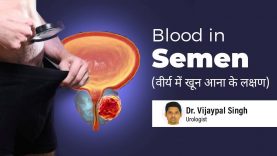Water On The Knee Swelling and Pain | घुटने में पानी भर गया है? कारण, प्रबंधन और उपचार? | Fluid on Knee Cap
- 3.55K
- 2 months from now
Dr. Manpal Singh Narula
Dr. Manpal Singh Narula
Water On The Knee | Swelling and Pain | Fluid on Knee Cap | घुटने में पानी सूजन और दर्द?
Water on the knee, In this video, Dr. MS Narula, Senior Consultant Orthopaedic Spine and Joint replacement at Apollo Clinic and City Hospital Sector 8 Chandigarh discusses some common reasons for knee swelling and ways to manage it.
What is knee swelling?
It is a condition where there is an accumulation of fluid around the knee which we call knee effusion in medical terminology. It is a common problem that affects all age groups.
Most common reasons for knee swelling | Water On The Knee
Injury is the most common reason for knee swelling. It can be acute trauma or a chronic overuse injury. In addition, an underlying condition like arthritis or bleeding disorder is possible. In some cases, there can be a fracture or internal bleeding disorder. Hence, the damage which occurs because of injury causes swelling.
Reasons for knee swelling without injury | Water On The Knee
If there is no injury, there is always a possibility of over-repetitive damage, like sitting in the wrong posture for a long time. Such conditions lead to microtrauma or minor injuries to the knees.
What leads to fluid accumulation in the knees?
Continuous minor injuries lead to the pooling of fluid. One indication of any lingering micro-injury is whenever fluid accumulates in the knee. In some cases, there are underlying conditions like rheumatoid arthritis or type of arthritis in young people or middle age.
Osteoarthritis | Water On The Knee
One type is osteoarthritis in aged people, in which the inflammatory swelling occurs due to a tear of knee joints. It might come at the backside of the knee or Becker cyst in a few cases.
Can poor clotting mechanisms lead to knee pain?
Bleeding disorder or poor blood clotting mechanisms can lead to knee pain. So in these cases, there is blood somewhat then fluid around the knee, which causes swelling.
How do we manage knee swelling? | Water On The Knee
Of course, when there is an underlying condition, like on diagnosis, if one has arthritis or injury, doctors need to address it.
Steps of RICE treatment
Standard and immediate RICE treatment helps relieve pain in knee effusion. In this, doctors’ first advice is to take a rest. Then, immediately stop the exercise causing this knee swelling. The second is to immobilise or elevate it by keeping two pillows below. The third provides compression; one can apply light bandages to protect it and elevate it. By elevating, one can use a pillow; lastly, icing is an essential part. Icing for 15-20 minutes, 3-4 times daily, helps reduce inflammation.
How to diagnose knee Swelling?
It’s essential to diagnose this condition. Specific blood tests and X-ray helps to diagnose any injury. However, in a few cases, MRI helps to understand the texture of fluid and the presence of any cartilaginous or ligament damage.
Is this a serious condition?
If this is a transient swelling and it’s not painful, then there is nothing serious in it. It’s just that one should diagnose it. But it’s serious if there is redness or infection with a fever. However, one always seeks a proper diagnosis from the doctor.
So can we exercise or massage?
Apart from RICE treatment, anti-inflammatory medicines also help in reducing inflammation. One can do gentle exercises like walking or leg stretching. Doctors advise doing only light activity. Avoid excessive folding of knees like sitting cross leg on the floor, gently locking—gentle massage, not deep tissue massage. One can always opt for a soft massage with icing.
Will it go away on its own?
It would go away on its own. See, this is the most common query among the patients. But, if there is swelling because of increased uric acid or gout, then if we reduce uric acid, swelling will reduce automatically. So if we treat these underlying conditions, this swelling will subside. But it will heal in time with anti-inflammatories.
What is Joint Aspiration?
It is a procedure to aspirate out the fluid in the knees. Doctors perform this procedure when the swelling is very intense and painful. It is also known as arthrocentesis. But repeating the needle for aspiration is not advisable.
How often can one go for Joint aspiration?
Often, we see patients say that they have their swelling every 2 or 3 months, and the doctor aspirates the liquid out with the needle. But this is not advisable. It increases the chances of inducing infection. So in this procedure, doctors only reduce the symptomatic pain, remove the fluid, and apply a compression bandage.
Advantages of joint aspiration
It has two advantages: the extended joint capsule gets relaxed, and the pain is gone; secondly, we can test the fluid for any infection, like uric acid or arthritis. So this joint fluid examination also gives a clue about the knee condition.
Which treatment is better: Icing or heat compression?
When there is acute swelling, especially during injury, a swollen joint, or a fall, you must do icing for the first 2 -3 days of RICE treatment. After that, it would significantly reduce the swelling and, therefore, the pain. Icing for 15-20 minutes, 4-5 times daily, reduces swelling and pain.
Heat compression | Water On The Knee
If there is a chronic injury that irritates you and there is stiffness there, hot treatment helps because it will increase blood flow in the injured area, healing will be better, reduce the pain as more blood will flow, and reduce the stiffness. So for chronic problems where you want more healing hot compression helps, and if you have pain and swelling, then we must do the icing. So both treatments help, and please don’t get confused over icing or hot compression.
Bottom line :
Various reasons may contribute to knee swelling and effusion. But one must always seek doctor advice to diagnose this condition properly. Also, RICE treatment with icing helps reduce pain and swelling around the knee area. But if it’s repeating and there is an accumulation of fluid in the knees, one must immediately concern the doctor.
Thank you















Comments (0)